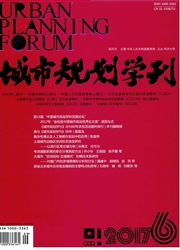

 中文摘要:
中文摘要:
选择乡村规划开始较早的城镇密集地区、国家级城乡一体化试点城市——苏州为研究对象,基于城乡关系视角,对其乡村规划演进历程进行阶段划分与特征解析,认为改革开放以来,苏州地区乡村规划已经历了“城乡分离时期——城乡碰撞时期”,现处于“城乡融合时期”的萌芽阶段;乡村规划经由“乡村单体规划,发展乡村——镇村整体规划,减灭乡村”,正在向“城乡整体规划,兼顾城乡”目标迈进。这是一个城乡趋于平等、规划趋于理性的乡村规划发展历程。在此基础上,以苏州为例,总结了现阶段城镇密集地区乡村规划中值得传承的探索经验:城乡规划编制体系、设施布局规划、技术导则颁布等都是乡村规划的有益尝试,极大促进了城镇密集地区的城乡一体化发展。此外,对乡村规划进行深入反思,总结出乡村规划价值观与新型城乡关系的背离、乡村规划编制与乡村发展逻辑冲突等问题,进而从城乡关系入手,在价值观念、认知研究、技术方法等方面提出规划思考与策略建议,以期推动乡村发展,促进城乡互补融合。
 英文摘要:
英文摘要:
This paper chooses Suzhou as an example, which is a national-level experimental city of urban-rural integration and which carried out rural planning at an early stage. The paper divides rural planning process into stages and and analyzes the characters from the perspective of urban-rural relationship. The research shows that rural planning in Suzhou had undergone two stages since 1978: First, from "urban-rural separation" to "urban-rural collision" and second the emerging stage of "urban-rural integration". Rural planning had experienced a transition from single village planning to benefit villages to comprehensive town-village planning to eliminate villages. The current practice is oriented toward overall urban-rural plans that give equal consideration to cities and villages. Based on such an understanding, the paper summarizes the successful contemporary experiences of rural planning in Suzhou, including the urban-rural planning formulation system, facili- ties planning and technical guidelines. In addition, this paper also summarizes main problems, such as the conflict between the values of rural planning and the new urban-rural relationship, and the mismatch between rural planning and the log- ic of rural development, etc. Finally, the paper gives further thoughts on planning values, cognitive research, technique and methods from the perspective of urban-rural relationship in order to promote rural development and urban-rural integration.
 同期刊论文项目
同期刊论文项目
 同项目期刊论文
同项目期刊论文
 期刊信息
期刊信息
